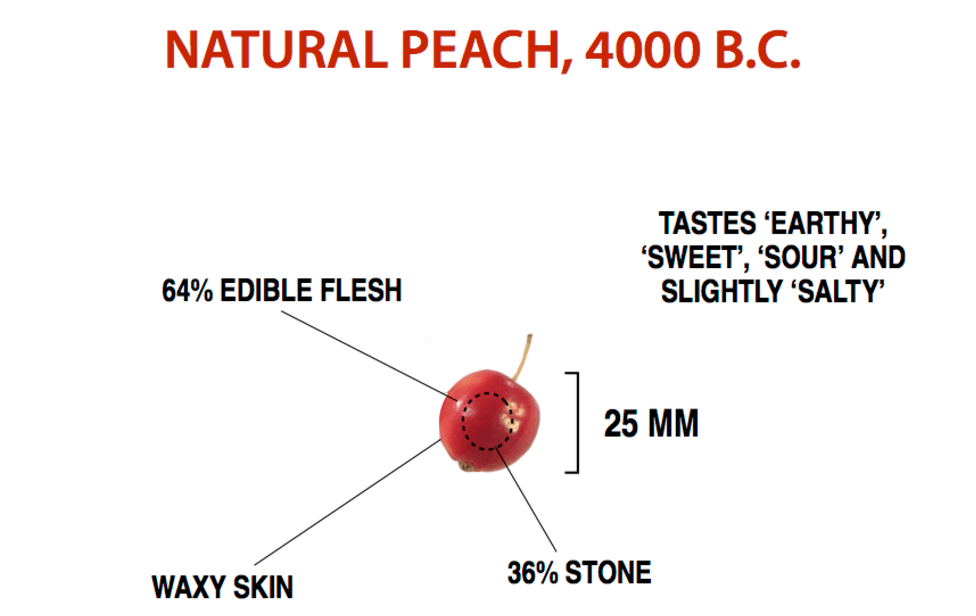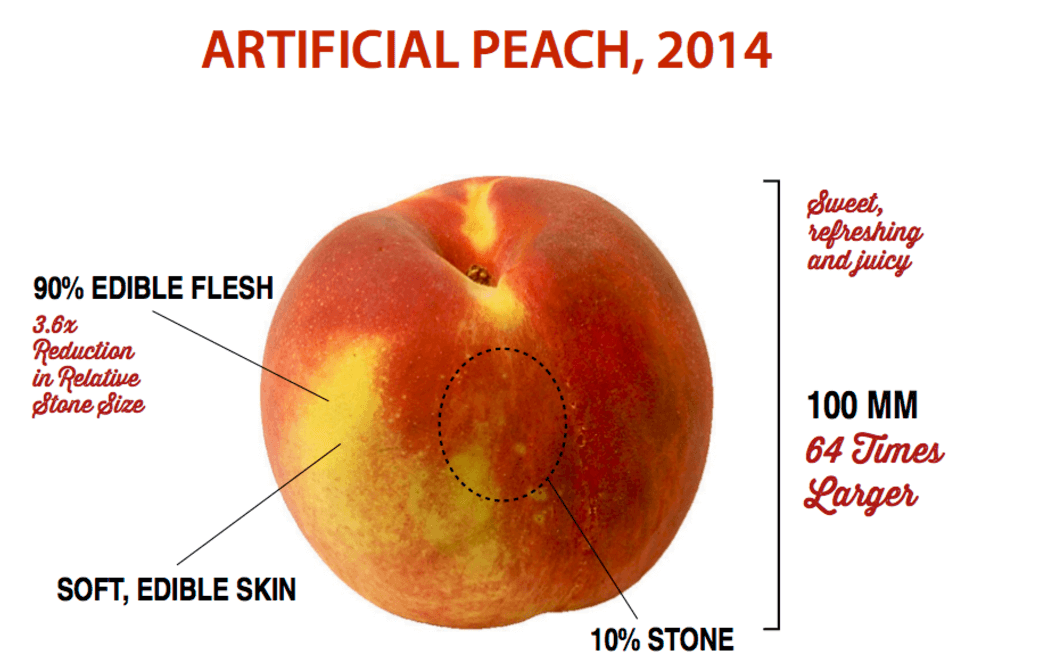Because most of society is between two and six generations removed from farming, to many people that subject is largely terra incognita, literally and figuratively. This lack of knowledge makes the public very susceptible to disinformation and the fear-based marketing of food.
It’s been said before but is worth repeating: Humans have been modifying the DNA of our food for thousands of years. It’s called … agriculture. Early farmers, >10,000 years ago), used selective breeding to guide DNA changes in crops to better suit their needs. Approximately a hundred years ago plant breeders began using harsh chemicals and/or radiation to create random mutations in the DNA of crop plants to, for example, turn bitter grapefruits into a sweet varietal. These mutagens caused innumerable changes to the DNA, none of which was characterized or examined for safety. Problems were rare, similar to what we see in conventional, pre-mutagenesis breeding. Today more than half of all food crops have mutagenesis breeding as part of their pedigree.
As a result of the use of a variety of techniques for genetic modification, including selective breeding, mutagenesis, somaclonal variation, and wide crosses, ancestral varieties bear little resemblance to the domesticated crops we eat today. There are many striking pictorial examples here.


Credit: James Kennedy
Several decades ago, agricultural scientists and plant breeders began to use recombinant DNA technology (“gene splicing”) to make far more precise and predictable changes in the DNA in our crops. This molecular genetic engineering (GE) enables plant breeders to take, for example, a bacterial gene with a known function (e.g., toxicity to certain insect predators) and transfer that trait into a crop. In that instance, it enables the GE crop to naturally protect itself from insect pests. This one trait has allowed farmers around the world to reduce broad-spectrum insecticide spraying by billions of pounds while raising yields.
More recently, new techniques to perform genome-editing, or gene-editing, have emerged, making genetic modification even more precise, predictable, and versatile. CRISPR-Cas9 is the prototype.
One would think that environmental non-governmental organizations (eNGOs) would cheer such innovation. Sadly, this is not the case; no good deed goes unpunished. Activists (many of whom benefit financially from their advocacy) have teamed up with companies that sell organic and “natural” food products to vilify “GMOs” (genetically modified organisms), crops crafted with molecular techniques.
This anti-genetic engineering industry and its lobbyists are primarily responsible for the public apprehension towards this technology. They have been very successful at generating fear about “GMOs” in the public. They then use that fear to sell dubious, overpriced organic or “non-GMO” food products and supplements to an unsuspecting public.
Even worse are the environmental NGOs’ attempts to prevent the creation and distribution of new, life-saving crops. “Deficiency of vitamin A is associated with significant morbidity and mortality from common childhood infections, and is the world’s leading preventable cause of childhood blindness,” according to the World Health Organization. There is a genetically engineered solution to it, but Greenpeace, one of the world’s most notorious environmental NGOs, has convinced a Philippines court to block the distribution to the poor of Golden Rice, which contains the precursor of vitamin A. The result will be more malnutrition, blindness, and deaths of children. Greenpeace’s actions should be the target of global outrage.

Golden Rice. Credit: IRRI/Flickr (CC BY-NC-SA 2.0)
This same global anti-technology industry lobbies for unnecessary and expensive regulatory barriers for gene-edited crops and animals. They have had success in Europe and Africa and, most recently, in Mexico. One of their specious claims is that high, albeit unnecessary, regulatory barriers promote consumer confidence. That’s cynical, and untrue.
Thirty-plus years of excessive regulation of genetic engineering has neither reduced public anxiety nor quieted the critics. If anything, these regulations have fanned public concerns about these safe, superior technologies. As Barbara Keating-Edh, representing the consumer group Consumer Alert, testified to the U.S. National Biotechnology Policy Board way back in 1991:
For obvious reasons, the consumer views the technologies that are most regulated to be the least safe ones. Heavy involvement by the government, no matter how well intended, inevitably sends the wrong signals. Rather than ensuring confidence, it raises suspicion and doubt” [emphasis in original]. (Keating-Edh, B. Statement before the National Biotechnology Policy Board (20 September 1991), cited in Biotechnology Law Report, March-April 1993, 12 (2); 127-182.)
We have more than a quarter century of experience with commercialized GE crops; literally thousands of assessments by governments and scientific organizations have found that GE crops are as safe, or even safer, than crops made using conventional breeding methods. Putting it another way, there is no evidence that the use of molecular genetic engineering techniques confers unique or incremental risks.
It seems that consumers crave technology and technological advances in every aspect of their lives—except in food production. They have welcomed the advent of hybrid engines and shoulder belts in cars and enthusiastically embraced smarter and more versatile phones, they love their seedless watermelons and almost endless apple varieties, but many are suspicious of genetic modification with the newest, best techniques.
Why is that? It is largely because of a decades-long, multi-national, multi-billion-dollar fear-and-smear campaign against genetically engineered crops and foods by the anti-genetic engineering machine. Largely funded by the organic and natural products industries and tort lawyers who cash in on class action suits settled by companies just to get them off the court docket, it attacks not only companies capable of producing breakthroughs but also individual academics and ordinary citizens who endorse the kind of science-driven public policy that will promote future advances. To increase its clout, rejectionist organizations like Environmental Working Group and US Right to Know have made common cause with the anti-vaccine movement.
The cabal is not just home-grown. Russia’s disinformation/propaganda apparatus has long been involved in disparaging genetic engineering, in part to foment thwart technological progress in Western countries. Who would be surprised if paid domestic internet “influencers” were also involved?
Technology has helped to double food production in the last 50 years. We have the cheapest, safest, most abundant food supply in history, but the enemies of progress continue to attack the technologies that have made that possible.
This article was first published by the Genetic Literacy Project.
Henry I. Miller, a physician and molecular biologist, was the founding director of the FDA’s Office of Biotechnology and now is Glenn Swogger Distinguished Fellow at the American Council on Science and Health. Rob Wager is a retired scientist from Vancouver Island University, but he continues his work as a researcher on genetically engineered crops.




